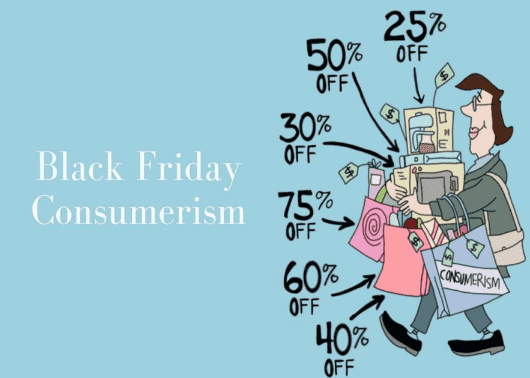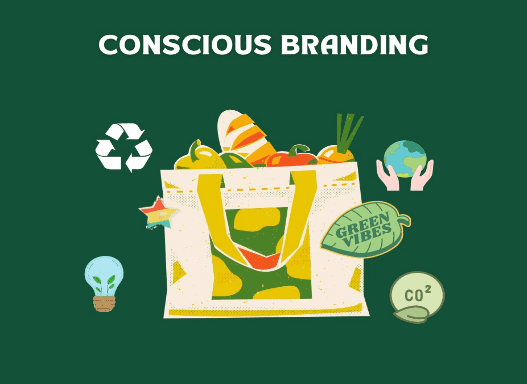In the contemporary consumer landscape, the obsession with tags and brands often leads individuals to spend unnecessarily which is a concerning issue nowadays. In an era dominated by consumerism, a growing awareness has emerged- Conscious Consumerism. What does this term refer to exactly?
The idea of conscious consumerism deals with a mindful attitude where people choose to consume less as well as ensures that whatever they consume must be as sustainable as possible.
It encourages consumers to question the origin, production processes, and overall impact of their chosen products.
Status Symbol Syndrome
Status symbol syndrome refers to the tendency of individuals to seek and display possessions or indicators of wealth and social status to gain recognition or validation in society. People with this syndrome may prioritise acquiring luxury goods, or extravagant experiences to showcase their social status.
This subconscious desire for social validation fuels unnecessary spending on items solely for their brand association. Social Media plays a huge role in it. Rather than spreading awareness of conscious consumerism, online platforms are often used to display worldly possessions, which create a sense of FOMO(Fear of Missing Out) among others.
The rise in the influencer culture amplifies the desire for branded goods. The pressure to conform to online standards pushes people to spend excessively on items merely for their visibility and association with popular brands.
Emotional and Psychological Marketing Strategies
Brands often use emotional branding strategies by associating people’s wants with their emotions which works as a triggering factor. This emotional branding taps into people’s desire for belonging, identity, and self-expression. They use symbols, colours, and visuals that evoke specific emotions and then reinforce the brand’s identity.
Brands also play with the psychological mindset of people by creating a perception of limited availability of the product to increase the demand, encouraging immediate action through limited-time offers, premium pricing, discounting etc. In all these cases consumers irrationally spend on the items and conscious consumerism is pushed aside.
Perceived quality bias and the Illusion of luxury
Consumers often equate brand names with superior quality, even if the actual difference in product quality may be minimal. This bias leads to misconceptions that higher price tags equate to better performance or durability. Associating the product with celebrities or influencers creates a sense of glamour and luxury.
The illusion of luxury involves creating a perception of exclusivity, prestige, and high quality, often without a corresponding reality. Brands invest in luxurious packaging materials, design, and presentation to enhance the perceived value of the product and make it more sophisticated. On the opposite side conscious consumerism involves being aware of the impact that products and brands have on various aspects of society and the environment.

Minimalism and Power of informed choices
Minimalism and the power of informed choices go hand in hand, reflecting a conscious and intentional approach to consumption by consumers. In contrast to the disposable culture of mass consumption, conscious consumerism often embraces minimalism. Choosing quality over quantity promotes a shift from fast fashion and throwaway culture.
Educating oneself about the products we buy empowers consumers to make informed choices. By investing in durable, long-lasting products, one can reduce waste and contribute to a more sustainable lifestyle. Labels indicating fair trade, organic, or sustainable sources of materials serve as a guide for conscious decision-making.
Knowledge to align purchases with values can contribute to positive change. Mindful consumption is a cornerstone of both minimalist and informed choices. Minimalism challenges the prevailing notion that happiness is synonymous with material abundance. In the same way, Informed choices challenge the conventional narrative of mindless consumption and encourage individuals to adopt a more intentional, ethical, and sustainable approach to the products they choose.
Challenges and prospects
Despite its growing popularity, conscious consumerism faces challenges such as greenwashing- where companies falsely claim eco-friendly practices. This undermines the trust of buyers. Ethical and sustainable products may be perceived as expensive, limiting accessibility for consumers with lower disposable incomes. People need more awareness or understanding of the environmental and social impact of their choices.
The prevalence of fast fashion promotes a culture of disposable clothing and contributes to overconsumption. However, with advancements in technology, various innovations can be used for future projects. Also, increased collaborations among businesses, NGOs, and government can be a collective effort towards implementing ethical and sustainable practices.
As technology, innovation, collaboration, and cultural shifts along with growing awareness of the environmental and social impact of choices, the future of conscious consumerism seems poised for positive transformations.

Conclusion
Conscious consumerism is a powerful catalyst. By understanding the impact of our choices and embracing a more mindful approach to consumption, individuals can collectively contribute to a more sustainable and ethical global marketplace. Overcoming the consumer mindset regarding brands and luxury items requires detachment from the pressure of external influences.
The idea of consumption should be based upon genuine utility rather than brand associations. In this journey, individuals, businesses, and societies each play a role in shaping a future where conscious consumerism is not just a trend but a fundamental shift toward a more responsible and mindful way of living and consuming.
-TANYA SHAH
MUST READ: SPREAD OF WARMTH: SK CHILDREN FOUNDATION’S SPECTACULAR ANNUAL DAY EVENT





